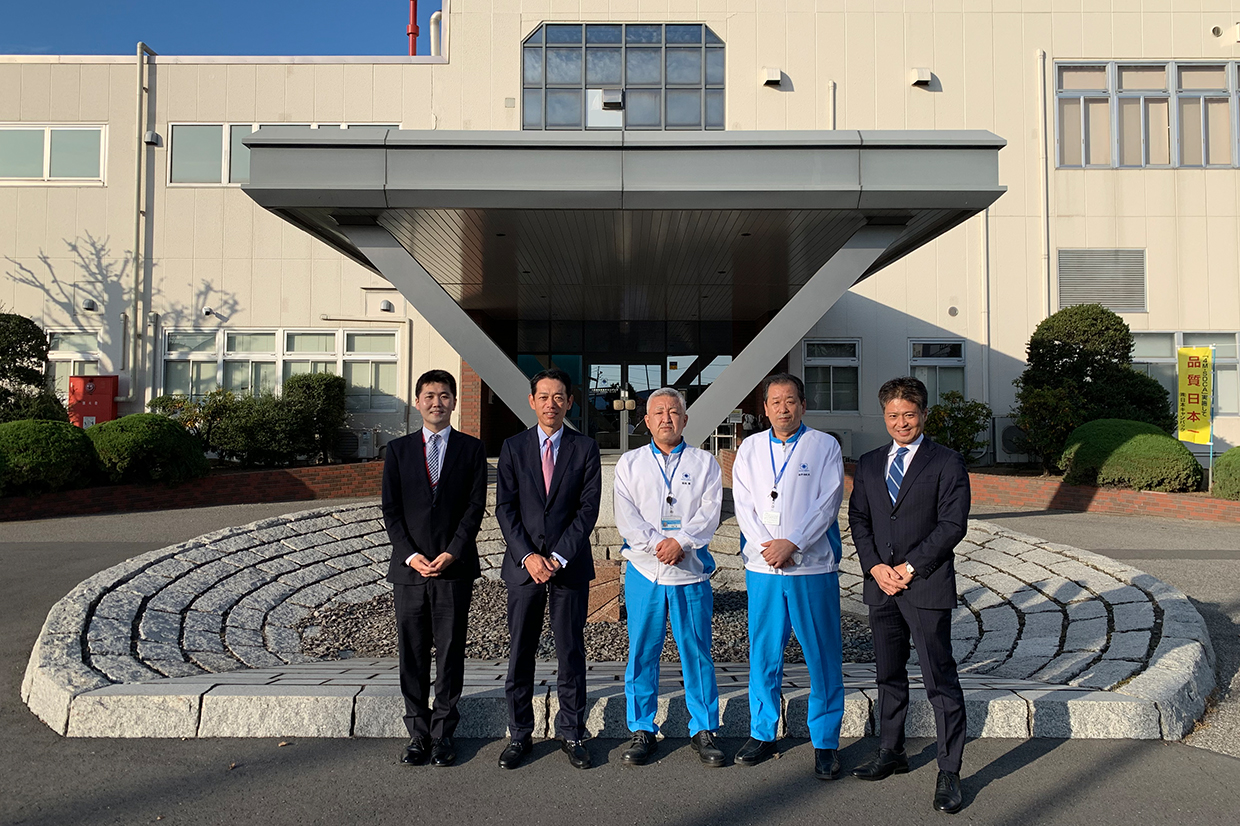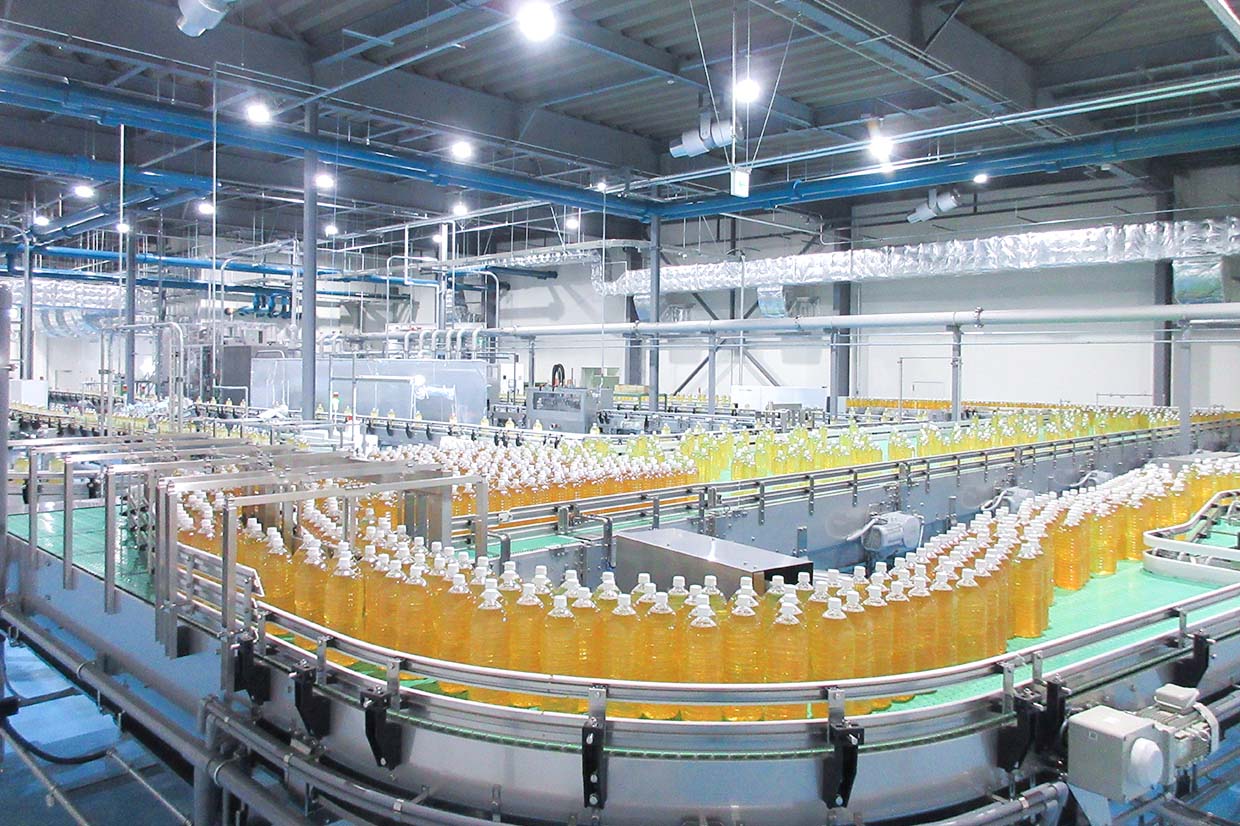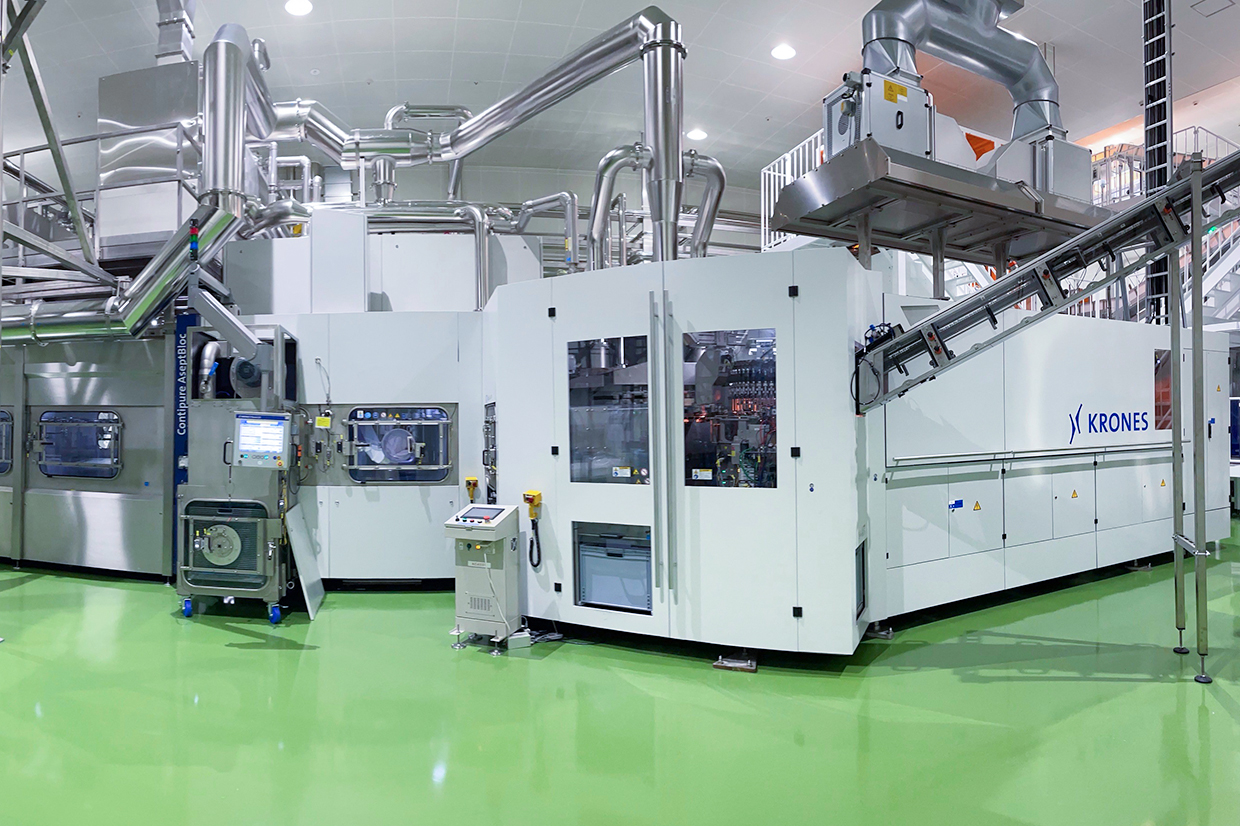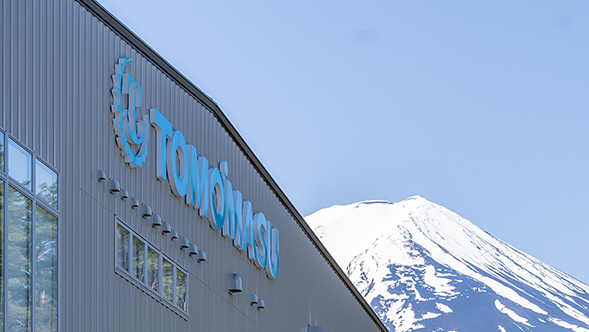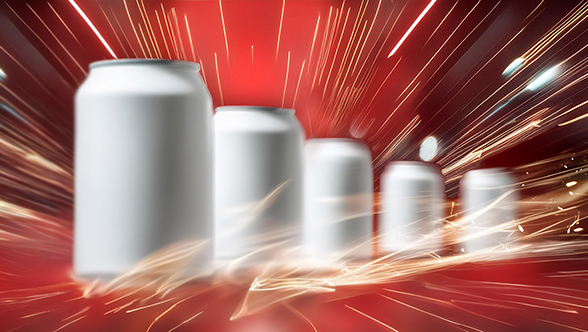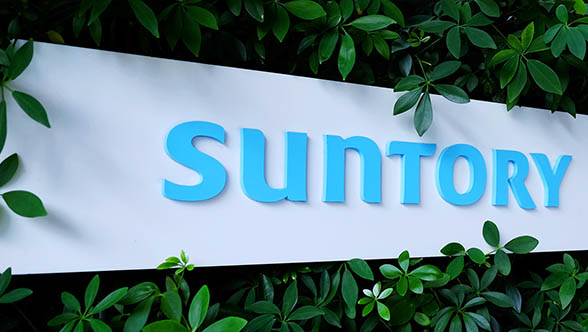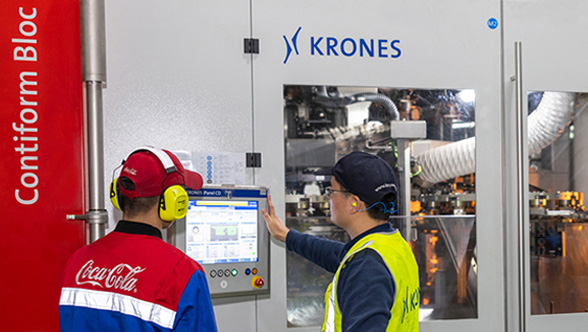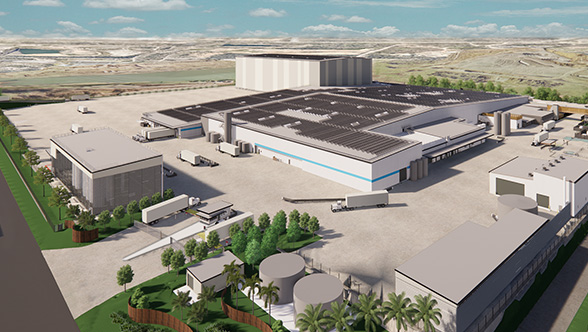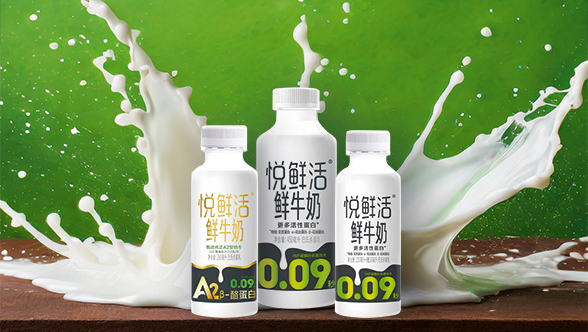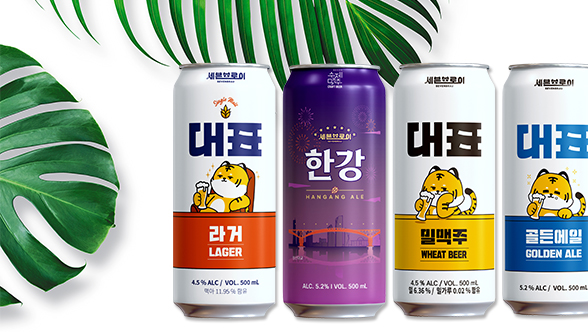Be it soft drinks, water, coffees or teas: the Who's Who of the beverage world comes to Nihon Canpack's production facilities. The responsibility is correspondingly great, as Factory Manager Masaru Horikoshi emphasises: "We work on behalf of major brand owners – and they naturally want to offer their consumers a great enjoyment experience. Product safety and quality are therefore extremely important to us."
This applies to both the drinks themselves and their packaging, because: The pursuit of perfection is firmly anchored in Japanese culture. Those who present their products on the shelves must live up to this high standard down to the last detail. "Japanese consumers have an incredible awareness of quality, especially when it comes to beverages and food," explains Masaru Horikoshi. "Even the smallest flaws, such as dents or scratches on the packaging, could damage trust in a brand."
Joint project by Krones and Toyo Seikan
International manufacturers of food or beverage equipment can tell you a thing or two about it: Japan is not considered the most demanding market in the world for nothing – and at the same time one of the most influential. Be it new beverage creations or technological innovations: Many trends that are born here subsequently go halfway around the globe. It is precisely for this reason that the Krones Group has stepped up its activities in Japan and enlisted the support of a strong regional partner: the Toyo Seikan Group.
Japanese consumers have an incredible awareness of quality, especially when it comes to beverages and food. Even the smallest flaws, such as dents or scratches on the packaging, could damage trust in a brand.
 Masaru HorikoshiFactory Manager, Gunma First Factory, Nihon Canpack Co., Ltd.
Masaru HorikoshiFactory Manager, Gunma First Factory, Nihon Canpack Co., Ltd.

